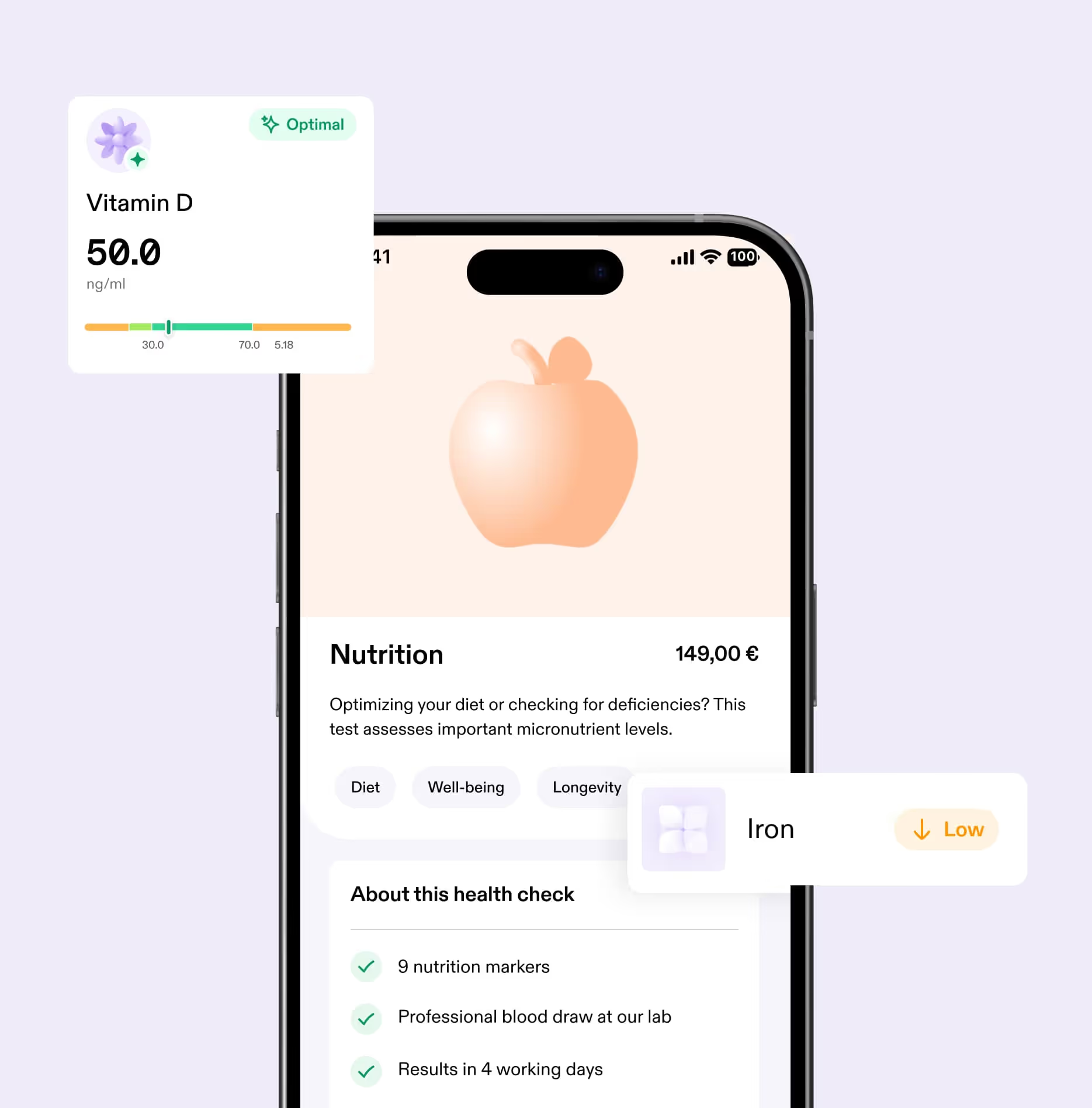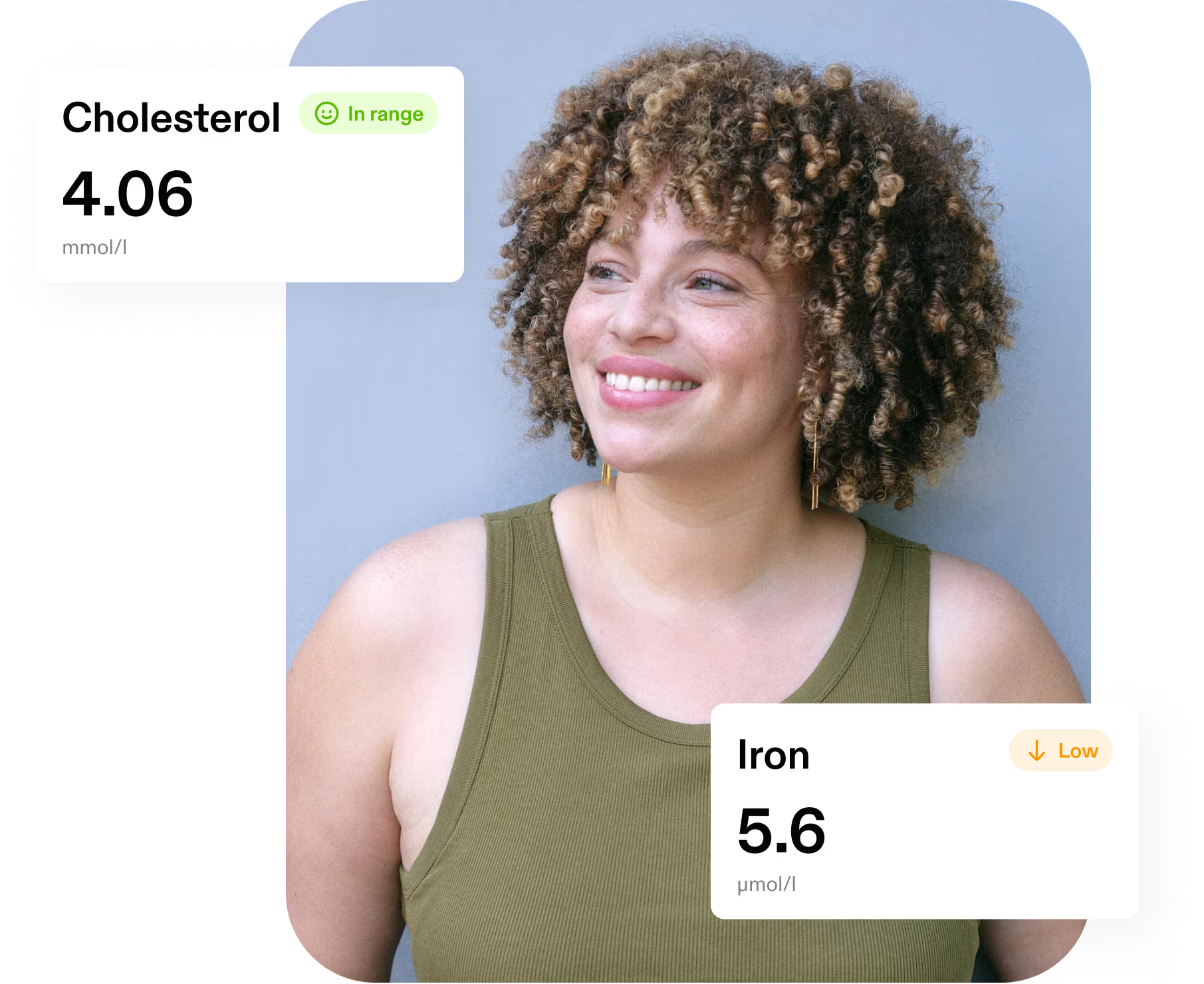Updated on
November 14, 2025
The sour truth: How artificial sweeteners affect your blood sugar
Can you have your cake and eat it too? The facts about sugar substitutes and glucose control.
.avif)
Are you trying to cut back on sugar but still crave something sweet? Artificial sweeteners may seem like a guilt-free alternative, but science shows they may not be as safe or effective as once thought. Recent research has shed new light on the complex relationship between artificial sweeteners and blood sugar regulation, along with other ways sugar substitutes may negatively impact our health. In this article, we'll explore the latest findings and separate fact from fiction on this controversial topic.
Here are the key points we cover:
- Artificial sweeteners are widely used in products worldwide as a “diet” option, but they may actually increase appetite and make you gain weight.
- New research shows that artificial sweeteners can raise blood sugar levels by interacting with your body’s microbiome and sweet taste receptors. Scientists have also recently discovered a link between artificial sweeteners and high blood pressure, heart disease, and even cancer.
- There are healthy and natural alternatives to artificial sweeteners and sugar that you can use to sweeten your food and drinks.
What are artificial sweeteners?
Artificial sweeteners, or sugar substitutes, are an alternative to added sugar that provide sweetness through chemicals. Brands spanning the globe add these sweeteners to processed foods, beverages, snacks, low-calorie ready meals, and dairy products. Lots of people also use them to sweeten their coffee or tea.
The most common artificial sweeteners used in the European Union and United States include:
- Sucralose (brand name: Splenda)
- Aspartame (brand names: NutraSweet, Equal, and Sugar Twin – used in soft drinks like Diet Coke, chewing gum, pudding, cereals, and instant coffee)
- Acesulfame (brand names: Sunnet or Sweet One)
- Saccharin (brand names: Sweet’N Low, Sweet Twin, and Necta Sweet – used in beverages, mixes for food products, and as a table sugar substitute)
- Neotame (brand name: Newtame – used in beverages and candy)
- Advantame (used in baked goods, beverages, frozen desserts, frosting, and other sweets)
These sweeteners are hundreds or even thousands of times sweeter than regular table sugar. Your tongue’s sweetness receptors recognize these chemicals as sweet, but the body generally can’t break them down into calories. Because of this, sugar substitutes have become a staple in the Western diet: studies report that 25% of children and 41% of adults consume them.
Can artificial sweeteners make you gain weight?
It’s logical that if artificial sweeteners don’t contain calories, they can’t make you gain weight… right? That’s why people trying to slim down often opt for the “diet” or “light” option when available. However, mounting evidence suggests that sugar substitutes may be fueling the obesity epidemic rather than fighting it.

Nutrition Package
The Aware nutrition test shows you if your body is getting enough vitamins and minerals.

Package
A 2015 longitudinal study on 749 adults over age 65 found that drinking diet soda is associated with weight gain around the stomach. Study participants who drank diet soda every day had the largest waist circumference. The San Antonio Heart Study discovered that drinking 21 diet beverages per week doubles someone’s chance of becoming overweight or obese.
And a 2017 meta-analysis found that artificial sweetener consumption is linked to an increase in body mass index (BMI), waist circumference, and obesity, along with a range of chronic health conditions, including hypertension, metabolic syndrome, type 2 diabetes, and poor heart health.
But how does this work if there are no calories?
Studies show that artificial sweeteners may make people feel hungrier and crave sugary foods, because sugar substitutes don’t create the same satisfaction as real sugar. Therefore, sweeteners confuse the brain into actually increasing appetite, and people end up consuming more calories. Changes that occur in the gut microbiome from eating these sweeteners may also make the body store more fat, researchers note in a 2019 review.
But the relationship between artificial sweeteners and weight control has been a hot point of contention in research for years, and other studies present conflicting results.
Can artificial sweeteners raise blood sugar?
Until recently, scientists believed that artificial sweeteners couldn’t raise blood sugar (or glucose) levels, making them a safer option than sugar for people with diabetes or obesity. But the latest evidence tells a different story.
In a 2021 review, scientists explain several ways artificial sweeteners (namely, sucralose) affect blood sugar:
Activation of glucose transporter cells
Mace et al. found that artificial sweeteners increase sugar absorption during a meal by stimulating various glucose transporter cells in rats.
Changes to gut bacteria
Artificial sweeteners make it more difficult for the body to regulate glucose after eating by changing your microbiome. Research from 2022 involving 120 healthy adults finds that consuming saccharin, sucralose, aspartame, and stevia significantly changes the abundance, activity, and types of bacteria in the mouth and gut. And people who had saccharin and sucralose experienced significant blood sugar spikes, shown in glucose tolerance tests.
Decrease in insulin sensitivity
Insulin is a hormone released by the pancreas that helps glucose enter your cells so you can use it for energy. When the body’s cells stop responding to insulin (insulin resistance), it can lead to high blood sugar, weight gain, and type 2 diabetes.
A 2018 randomized controlled trial found that healthy people who consumed sucralose daily over 14 days had an almost 18% decrease in insulin sensitivity, compared with a 3% decrease in the control group. Researchers have observed the same effect on insulin in an obese study population.
However, just like weight gain, the research here is mixed. For instance, a 12-week randomized clinical trial found that sucralose didn’t impact glucose and insulin levels.
Artificial sweeteners and diabetes
Today, diabetes is the most common hormonal disorder and most important comorbidity (a condition that occurs alongside one or more diseases) worldwide. For a long time, sugar-sweetened beverages got most of the blame for the rising type 2 diabetes epidemic. While research has yet to prove a direct causal link between sugar substitutes and diabetes, recent evidence shows that artificially sweetened beverages may share their part of the blame as well.
For example, a 2017 observational study involving over 64,000 women in postmenopause investigated how drinking sugar-sweetened beverages vs. artificially sweetened beverages vs. plain water impacts the risk for diabetes. After 8 years, 4,675 participants had diabetes. Researchers determined that artificially sweetened beverages were associated with a 21% higher chance of developing diabetes, and sugar-sweetened beverages increased the probability by 43%.
The same was discovered in a 2013 study involving over 66,000 women – both artificially sweetened drinks and drinks with sugar are linked to a higher probability of having type 2 diabetes in the future. Among people who have already been diagnosed with diabetes, research shows that using artificial sweeteners has a direct impact on insulin resistance.
How to check your blood sugar levels
If you’re interested in learning if your blood sugar is in a healthy range, you can find out with a simple blood test. At the Aware Lab, you can easily test 2 important glucose markers without waiting weeks for a doctor’s appointment and your results. The health markers we test give an overview of both long-term sugar levels as well your current glucose status.
The HbA1c test measures how much blood sugar is attached to your hemoglobin and shows your average glucose level over the past 2-3 months. And the fasting glucose test takes your blood sugar level after fasting overnight. Your results will be available inside your Aware App within a day, along with expert tips on how to improve blood sugar levels.
Other side effects of artificial sweeteners
Evidence finds other potential dangers of artificial sweeteners. For instance, many studies have linked sugar substitutes to high blood pressure. Having high blood pressure increases the chance of heart attack and stroke, along with other health complications. Sure enough, a 2021 systematic review and meta-analysis and a 2022 study concluded that artificially sweetened beverages are associated with an increased risk for cardiovascular disease, heart attack, and overall mortality.
On top of that, new research finds a connection between artificial sweeteners and cancer: Scientists discovered that after 8 years, people who consumed low-calorie sweeteners (especially aspartame and acesulfame) had a higher chance of developing cancer.
All of these findings call the safety of artificial sweeteners into question. In light of the growing evidence, health agencies like the European Food Safety Authority and World Health Organization are currently re-evaluating low-calorie sweeteners.
Alternatives to artificial sweeteners
Now, if you want to sweeten a food or drink and want to avoid sugar and artificial sweeteners, where can you turn? The good news is that there are still healthy options out there.
Monk fruit extract
Monk fruit comes from Southeast Asia and is available as a natural sweetener with no calories or carbohydrates. The U.S. Food and Drug Administration and studies haven’t found any harmful side effects of monk fruit extract. Research shows it may even help control blood sugar levels and prevent complications from diabetes. If you buy monk fruit extract, just make sure to check the ingredients – some manufacturers add sugars like maltodextrin or dextrose to balance out the taste.
Stevia
Stevia is a very popular natural and low-calorie sweetener. It gets its sweet taste from compounds in the leaves of a plant called Stevia rebaundia. Research finds that stevia doesn’t impact blood sugar and insulin levels. But the 2022 study mentioned earlier found that it can affect the gut microbiome, and some people may experience gas, nausea, and bloating from using stevia. Like with monk fruit, check if there are other sweeteners added to stevia before buying.
Fresh fruit
When you’re craving something sweet, fresh fruit is a good alternative to pure cane sugar. You can blend fresh or frozen fruit and add it to your recipes to add some sweetness. While fruit contains fructose (a form of natural sugar), they’re also rich in vitamins and minerals, so the sugar boost is more worth your while.
If you’re trying to control your blood sugar levels, choose fruits with a lower glycemic index (GI). GI is a rating system for foods with carbohydrates that shows how fast they make your blood sugar go up when you eat them.
Low-GI fruits include:
- berries
- apples
- oranges
- bananas
- mangoes
- dates, and
- pears
Yacon syrup
The Yacon plant comes from the Andean regions of South America. It produces nectar that can be used to make syrup. Yacon syrup has 50% of the calories as regular sugar and is high in soluble fibers that may aid weight loss and reduce blood sugar levels, according to a 2016 review in Nutrients. Researchers find that it can be used as a dietary supplement to help prevent and treat chronic illnesses.
If you're ready to check, track, and improve your health and well-being, become an Aware member today.
The bottom line
When it comes to artificial sweeteners and health, it appears that the cat is out of the bag. Mounting evidence shows that contrary to popular belief, low-calorie sweeteners may contribute to weight gain and raise your blood sugar levels via interactions with your body’s microbiome and sweetness receptors. That’s not to say that you should switch back to sugar if you are a die-hard artificial sweetener consumer. Luckily, there are other healthy options you can use to add a dash of sweetness to your food or drinks.
Subscribe to our newsletter!
Articles, tips, and offers. Straight to your inbox.





.avif)






